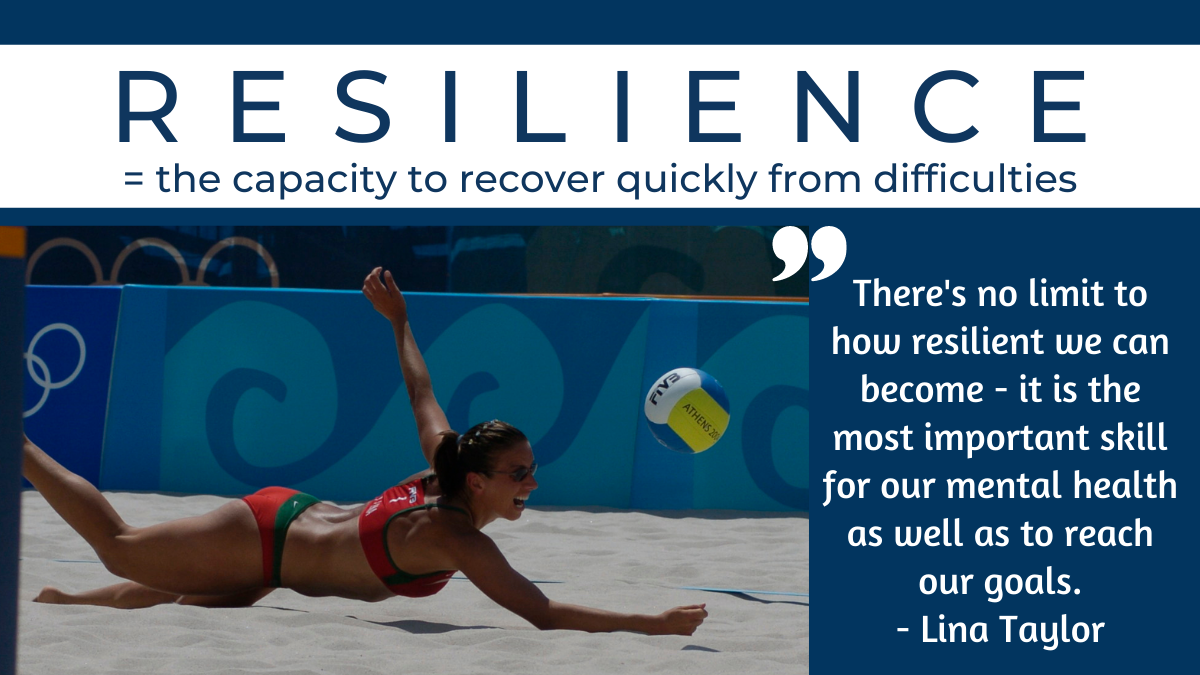Building Resilience: Step 1
When you take a closer look at any great achievement - be it athletic, scientific, or in business - you’ll notice a remarkable similarity in the micro-moments that allowed the scales to tip in favor of the winner. I love diving into the smallest of details in those moments and here’s what I’ve learned from my own experiences as well as studying countless of elite athletes, businesses, and scientists.
“Resilience is the capacity to recover quickly from difficulties and there’s no limit to how resilient we can become. It’s the most crucial skill for our mental health and also, to reach our goals.”
How do you become more resilient? Explore these 5 steps:
Step 1. Accept what happened.
This is easier said than done and it’s where most of us stumble to begin with. Acceptance requires a degree of humility, which acknowledges the fact that we don’t control every outcome. This is an outlook that’s easy to forget especially when we become really good at something - the more we master certain skills, the more confidence we build, expectations start to set in and we tend to lose our “beginner’s mind,” which is open to possibilities and takes mistakes as learning opportunities versus something to feel disappointed about. Does this sound familiar? We feel pressure to perform - sometimes this pressure comes from our own expectations, sometimes it’s external (we try to live up to someone else’s expectations), but most of the time, it’s both - internal and external pressures combine to make a little pressure cooker inside our own minds. Consciously or subconsciously, we start telling ourselves a story: this is acceptable, and that isn't acceptable. Even Olympic athletes, who train to thrive under pressure aren't exempt from this.
The trick to releasing this pressure, and regaining our fresh outlook unencumbered by expectations, is to acknowledge that we don’t control every outcome. In fact, we realize that our role is to co-create the outcomes, which carries the responsibility of training, preparing, mastering the skills, while at the same time we stay open to the possibility that something even better than we imagine could result from our efforts.
This is humility and faith working together and acceptance is the result. Acceptance is acknowledging what happened without attaching an emotional explanation of the past or an emotional anticipation of the future. Our emotional response to a situation is always rooted in past conditioning to protect us from an eventual future outcome - which kept in that context is good, but the trouble is that the meaning we attach to events isn't always true in the present moment. So, if we operate in the present under what may have been true in the past, we limit the outcomes of what can come in the future.
“If we operate in the present under what may have been true in the past, we limit the outcomes of what can come in the future.”
Acceptance is simply a moment of being present to what is right now - not in the past and not in the future. With acceptance, we can move on to the next step: taking responsibility.
To be continued…
